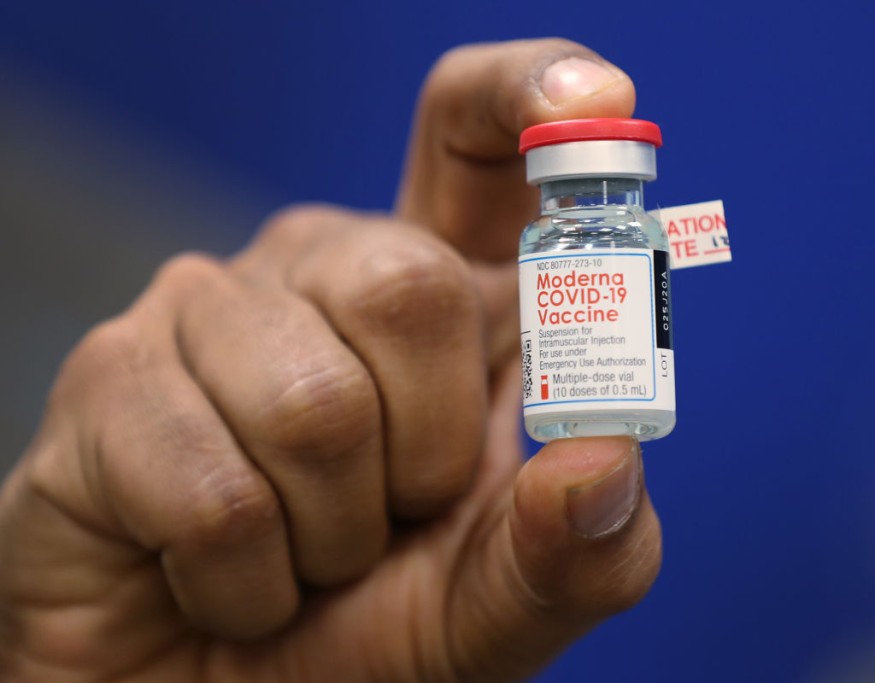Doctor Had Severe Allergic Reaction To Moderna Vaccine

A physician based in Boston reported developing a severe allergic reaction minutes after receiving Moderna's COVID-19 vaccine on Thursday.
According to a The New York Times report, the incident happened in the first week of the nationwide release of Moderna's vaccine, and it was the first case reported to be connected to the firm's vaccine.
Federal agencies are looking at six cases involving people who suffered anaphylaxis after having the Pfizer-BioNTech vaccine.
Officials of the U.S. Food and Drug Administration (FDA) and the Centers for Disease Control and Prevention (CDC) had discussed the reactions that involve Pfizer's case. However, they have not yet determined whether an ingredient in the vaccine caused allergic reactions.
Related story: U.S. Health Worker Reports Serious Allergic Reaction to Pfizer Vaccine
Some health care workers in Britain had also reported experiencing anaphylaxis after receiving the Pfizer vaccine earlier this month.
Dr. Hossein Sadrzadeh, a geriatric oncologist at Boston Medical Center, was the reported doctor to have a severe allergic reaction to the vaccine.
The doctor has a severe shellfish allergy, according to reports. He had an appointment to get a Moderna shot in the afternoon.
Sadrzadeh said that he experienced a severe reaction immediately after he was vaccinated. He reported feeling dizzy, and his heart began racing.
According to the Medical Center's spokesman David Kibbe, the doctor was then allowed to self-administer his personal EpiPen before he was taken to the Emergency Department. The doctor was evaluated, treated, observed, and eventually discharged.
Ray Jordan, a spokesman for Moderna, said the company could not publicly comment on individual cases. He added that the company's medical safety team would look into the matter
The FDA has yet to comment on the latest incident.
The Potential Culprit
Scientists are looking at the compound polyethylene glycol, also known as PEG as the possible culprit for the allergic reactions to the Pfizer-BioNTech vaccines.
According to a Wall Street Journal report, the scientists pointed to PEG as the possible allergen even though health officials still probe the incidents and plan to study the issue further.
The compound, found in some pharmaceutical products, including ultrasound gel, laxatives and injectable steroids, is known to trigger anaphylaxis on rare occasions.
Director of FDA's Center of Biologics Evaluation and Research, Peter Marks, said it is known that one of the components present in the two vaccines - PEG - can be associated, rarely, with allergic reactions.
"What we're learning now is that those allergic reactions could be somewhat more common than the highly uncommon that we thought they were because people do get exposed to polyethylene glycol in various pharmaceutical preparations," Marks said in the report.
Meanwhile, allergists and immunologists claim that allergies to PEG are extremely rare, adding that those people who had reactions after getting the vaccine may have reacted to something else.
PEG is part of the fatty envelope that surrounds the messenger RNA, the main ingredient in both the Pfizer-BioNTech and Moderna vaccines.
Elizabeth Phillips, director of the Center for Drug Safety and Immunology at Vanderbilt University Medical Center, noted that "they are all in a big large family, but in terms of their allergic potential, they're not equal."
Subscribe to Latin Post!
Sign up for our free newsletter for the Latest coverage!

















